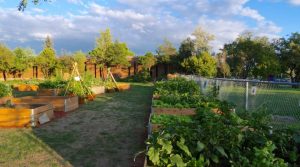This reflection is an overall self-assessment of my performance in the course. I describe some of the challenges I faced, as well as some of the positives gained from this experience. I also discuss on how I feel my skills line up against my future career.
Overall Assessment
Overall I found the technical writing course to be very rewarding. I do not have the opportunity to work a lot on professional writing, even though it is a fundamental part of what I do at work. The course had many assignments that gave me the opportunity to continually work on my skills. For example, when the “YOU” attitude style of writing was presented, I had many assignments thereafter to practice the style. The assignments started off simple, such as writing a small email memo offering advice. Larger assignments were gradually presented, such as the peer review of the formal report that required the deployment of the “YOU” attitude.
Weaknesses
I have found through writing many assignments in this course that my vocabulary is limited, and my sentence structure is repetitive. I have noticed that reading other people’s work is helpful to develop different ways to formulate sentences. I found that peer reviewing was a good exercise to help me cultivate a variety of sentences, and also aided in broadening my vocabulary. Sometimes I find that I awkwardly word a sentence or description that my peer reviewer may revise for me.
Sometimes I have difficulty using the correct tense. I can catch most of my mistakes by revising my work many times over a couple days.
Strengths
I think that I am very proficient in prioritizing my work. Being aware of impending deadlines helps me to organize day-to-day tasks and keep a calendar of which work I need to complete by a certain date. Acknowledging that my work needs to be finished in order for my peer to review my work, adds to the urgency of completing my work on time.
My writing flows the best when I am familiar with the writing topic. This is true for my formal report. I found that everything came together quite naturally because I spoke with many professionals about composting, and by working at Statistics Canada, I have a good understanding of how the internal policies work.
Future Career
I believe the skills I have developed at school and at the workplace have assisted in the career I want in the future. Currently, I would like to work in the field of data science, since it is a hot field that combines both Statistics and Computer Science. My degree aligns perfectly with a job in Data Science, and I am accommodating my course schedule at school to consider courses such as Computational Optimization and Data Mining that are relevant to a career in Data Science. My previous and current work experience all involve data analysis and data manipulation, which is applicable to my career. I am fortunate to have opportunities to work in the field of my studies, and also be able to apply my classroom learnings in the real world.
This course has also been beneficial to my future career. The documentation that I write in the workplace needs to be articulated carefully with details; however, I always have to consider who my document is written for. According to the audience of my documentation, I tailor the specifics of the report to the audience’s technical background.

